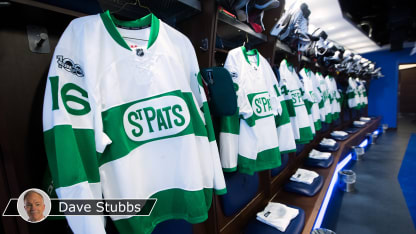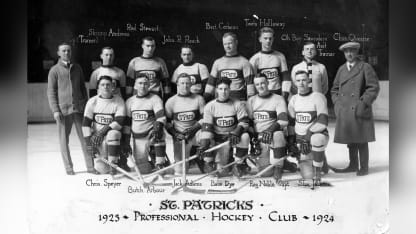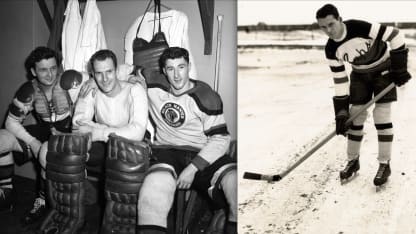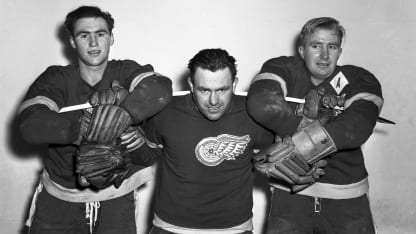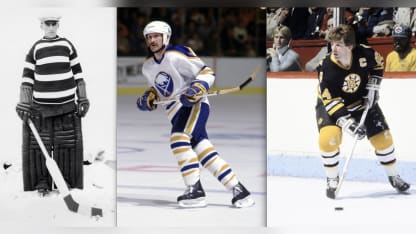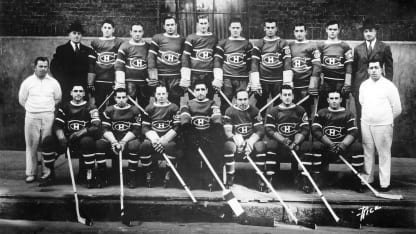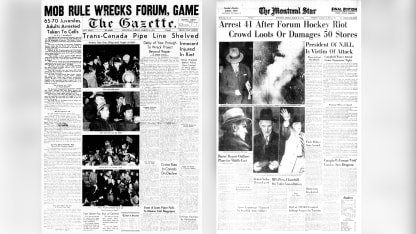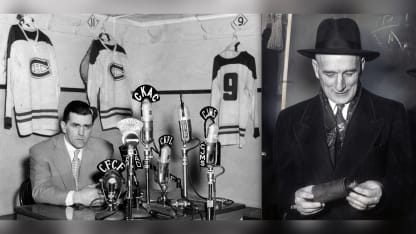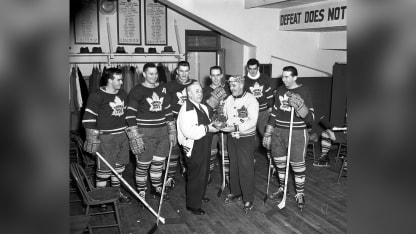Chicago Black Hawks' Gus Bodnar, goalie Al Rollins and Sid Finney during the 1952-53 season; Bobby Kirk, here with the 1932-33 WCHL Regina Capitals, on his way to playing for the 1937-38 New York Rangers. Le Studio du Hockey/Hockey Hall of Fame
But here, the Irish natives of the NHL, as the League declares:
Jack Riley, born in Berckenia: 103 games, Montreal Canadiens and Boston Bruins, 1933-36;
Bobby Kirk, born in Dough Grange: 39 games, Rangers, 1937-38;
Jim McFadden, born in Belfast: 412 games, Detroit and Chicago, 1947-54;
Sid Finney, born in Banbridge: 59 games, Chicago, 1951-53.
The four combined for 124 goals -- McFadden scored 100 of them -- and 163 assists.
Forty-two skaters plus five goalies through NHL history have had Patrick as a first name or surname; 40 skaters plus two goalies have had a surname beginning in O'.
Of course, we'll give top marks to Boston's Terry O'Reilly. The feisty Bruins legend racked up 2,095 penalty minutes in his 891 games between 1972-85, popularly taking 1,006 of those minutes at home.
